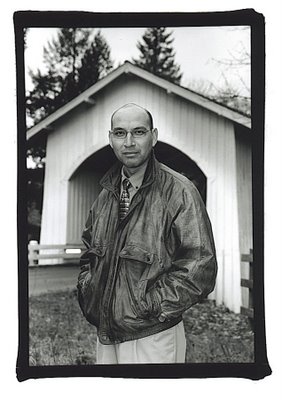#22 - Forgotten
There is nothing as lonely as fixing three meals a day for someone who can no longer talk to you. -a wife
 Birthdays, vacations, a first love . . . fond memories. Addresses, names, a phone number . . . necessary ones. People with Alzheimer's lose both. Eventually, everything is Forgotten.
Birthdays, vacations, a first love . . . fond memories. Addresses, names, a phone number . . . necessary ones. People with Alzheimer's lose both. Eventually, everything is Forgotten. Alzheimer's Disease (AD) is the irreversible, progressive death of brain cells that slowly destroys the memory and thinking skills of its victims. At first, individuals encounter minor lapses in memory and changes in personality leading to increasing trouble concentrating, organizing, and planning. Next, AD patients experience advanced identity loss and confusion and may be unable to learn new things, carry out tasks that involve multiple steps, or cope with new situations -- using a cell phone, getting dressed, or going out for dinner requires assistance now. By the final stage, Severe AD, individuals can no longer communicate and are totally dependent on others for their care, including eating and using the toilet. They can no longer smile, sit without support, or hold their heads up.
Alzheimer's Disease (AD) is the irreversible, progressive death of brain cells that slowly destroys the memory and thinking skills of its victims. At first, individuals encounter minor lapses in memory and changes in personality leading to increasing trouble concentrating, organizing, and planning. Next, AD patients experience advanced identity loss and confusion and may be unable to learn new things, carry out tasks that involve multiple steps, or cope with new situations -- using a cell phone, getting dressed, or going out for dinner requires assistance now. By the final stage, Severe AD, individuals can no longer communicate and are totally dependent on others for their care, including eating and using the toilet. They can no longer smile, sit without support, or hold their heads up.
In 2010, it was estimated that 5.3 million Americans have Alzheimer's Disease. In fact, 1 in 8 Americans over age 65 has AD and every 70 seconds someone in the United States develops it -- by mid-century that time will be every 33 seconds. Women are more likely to develop AD than men, and older African Americans are 2 times more likely to develop the disease than older whites. It's the seventh leading cause of death in our country and adds $172 billion in annual costs to our health care system. But there's another growing problem AD creates that's often overlooked.

People in the U.S. with AD required nearly 11 million unpaid caregivers. Since Alzheimer's patients live an average of 8 years after being diagnosed, 70 percent of them live at home so the majority of these caregivers are family members. Unfortunately, this subjects loved ones to high levels of stress and depression -- a recent study determined that the stress of providing home care to a family member with AD was so great that 72 percent of those caregivers experienced relief when the person died. 3 years ago my brother-in-law Robert was diagnosed with Alzheimer's Disease and my sister Gail became his home caregiver . . . that's when all these statistics suddenly became relevant to me.


Robert, 61, was a highly successful Bay Area software engineer for 25 years until he became mysteriously unable to perform and lost his job in 2006. A year later he was diagnosed with Alzheimer's Disease and is currently at the moderate stage exhibiting memory loss and difficulty communicating and concentrating. His wife Gail learns providing his home care is a full time job so she must quit hers. They discover the Rosener House, an adult day service specifically designed for Alzheimer's patients offering music and other non-traditional therapies, and Robert begins to attend twice a week. My picture story, "Robert Visits Rosener," (excerpted here) chronicles a single visit there illustrating the diversity of the participants in the program and serves as the starting point for something very meaningful to me.
Recently I discovered the Alexia Foundation Photography Grant, a fully funded offer for a photographer to document a single subject for one year that fosters cultural understanding or world peace, and decided I needed to apply for it . . . and to record my family's story. If awarded the Alexia Grant, my goal is to create a greater worldwide awareness of Alzheimer's Disease by producing a photo essay illustrating the devastating effects, unseen costs, and reasons for hope in battling AD. I'd begin by documenting Robert's progressive struggle with advancing AD and the problems this creates for his family caregiver Gail. I'd cover the Rosener House and another center with a severe AD ward, investigating methods of therapy and care in comparison and contrast. I'd photograph a spectrum of Alzheimer's patients to prove the disease can strike anyone anytime. Finally I'd document the work at research centers where scientists are searching for a cure.



Alzheimer's patients lose everything, methodically and slowly, through no fault of their own. Their stories deserve to be recorded, shared, and understood . . . before they're Forgotten.





